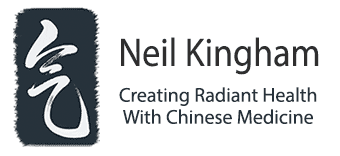Chinese Medicine & Acupuncture For Bells Palsy / Facial Paralysis
Bell’s palsy is a condition that causes a temporary weakness or paralysis of the muscles in the face. It usually occurrs when the nerve that controls your facial muscles becomes inflamed, swollen, or compressed.
The condition causes one side of your face to droop or become stiff. You may have difficulty smiling or closing your eye on the affected side. It sometimes doesn’t have an obvious trigger, and some people simply wake up one morning with it.
It can cause drooling, difficulty eating and drinking, an inability to make facial expressions, such as smiling or frowning and weakness, eye irritation and headache.
The Chinese Medicine Understanding Of Bells Palsy
There can be a few different causes of Bell’s Palsy, the most common is understood in Chinese medicine as a kind of ‘external invasion’ – this concept encompasses all kinds of diseases and conditions where something from the outside influences or harms the body, and so includes virus, infections and the like. These external invasions are typically acute with a sudden onset, such as we find with Bell’s Palsy.
The invasion is said to lodge at the surface of the body, causing a stagnation, and blocking the free flow of blood and qi to the area. This is what causes the weakness, numbness and paralysis.
Acupuncture For Bell’s Palsy
As a general rule, acupuncture is normally very good at treating conditions that are to do with the nerves – and Bell’s Palsy is no exception. I have treated it a number of times in my Bristol acupuncture clinic with good results.
Acupuncture works by restoring the free flow of blood and qi, which is exactly what is needed in conditions like these. As always the treatment is tailored to the individual, depending on the exact signs and symptoms, as well as the overall constitution and general health. Normally I use a number of extra-fine needles in the effected side of the face, as well as some others on the hands, feet or legs which help to reinforce the facial points. The results can be quite quick.
The Evidence
Wang et al looked at 83 patients with Bell’s palsy, who were randomly divided into two groups to either receive standard care or standard care plus acupuncture.The acupuncture group performed significantly better than the control group, and the researchers concluded that ‘there is significant curative effect and suitability in the treatment of Bell’s palsy with the combination of traditional Chinese medicine and western medicine.’
In a different study at the Affiliated Hospital of Liaoning University of Traditional Chinese Medicine, researchers also found acupuncture an effective complementary medicine for the treatment of Bell’s Palsy.
The total recovery rate for one arm of the study receiving medications plus acupuncture was 87.23% and the total effective rate was 97.87%. For the other arm of the study receiving only medications, the total recovery rate was 32.61% and the total effective rate was 80.43%. Acupuncture produced significant improvements in effective rates.
The results indicate that acupuncture as a standalone therapy, and that acupuncture combined with usual care are both effective treatment protocols.
Finally, a meta-analysis by Zhang et al, published in Medicine (May 2019 – Volume 98 – Issue 19 – p e15566) looked at 11 randomized controlled trials with an overall sample of 1258 individuals and concluded that acupuncture seems to be an effective therapy for Bell’s palsy. Results of the meta-analysis showed that acupuncture was associated with increased cure rate and total effective rate of the treatment of Bell’s palsy in comparison with drugs.
Chinese Herbal Medicine For Bell’s Palsy
Herbal medicine can also be used to treat paralysis of all kinds, including Bell’s Palsy. This is a good option for those who are scared of needles, or if acupuncture has been tried without results.
Sometimes the symptom pattern is more complex than a simple case of Bell’s Palsy and other factors are at work. As herbs work in a different way to acupuncture, they are a good option in these cases. Again, the herbs need to be carefully selected to match the individual signs and symptoms, and every formula is different depending on exactly what you need.
Although the treatment method is different, the aims are the same – to clear the ‘external invasion’, remove blockages and restore the flow of healthy blood and qi to the effected area.
Click here for more details of my practice: Bristol Acupuncture & Chinese Medicine Clinic








